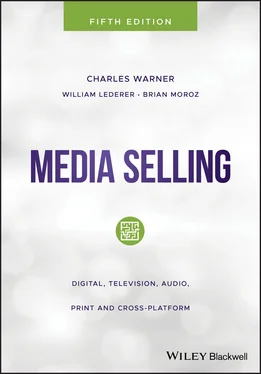Do I have emotional intelligence?
Socrates said that all knowledge begins with, “Know thyself.” Self‐knowledge is the keystone of EQ. It is the awareness of one’s feelings as they occur. Self‐awareness is a non‐reactive, nonjudgmental attention to one’s inner states and feelings. To find out if you have emotional intelligence you have to ask yourself the following thee questions, as outlined by Daniel Goleman and Michele Nevarez in a 2018 Harvard Business Review article titled “Boost your emotional intelligence with these 3 questions.” 5
1 What are the differences between how you see yourself and how others see you?
2 What matters to you?
3 What changes will you make to achieve these goals?
What are the difference between how you see yourself and how others see you?
Obviously, to answer this question you need feedback, and the first step in getting feedback is to get a sense of how your self‐perception, or how you see yourself, differs from your reputation, or how others see you. This type of feedback is important because we can be blind to other people’s reaction to us. For example, most people think they are good listeners, but very often that is not the case. Research shows that 90 percent of people who drive cars think they are above average drivers, which, of course, is mathematically impossible. Without some sort of external reality check, it is difficult for people to identify the ways in which they can improve.
Getting feedback from others can provide proof of the necessity of changing specific behaviors on one or all of the four dimensions of EQ: self‐awareness, self‐management, social awareness, and relationship management.
In order to gain the best idea of where the differences lie between your self‐perception and your reputation, you should use some sort of 360‐degree feedback assessment that takes into account the four dimensions of EQ such as the Emotional Intelligence Appraisal – Multi‐Rater & 360° Editions available for purchase at https://www.talentsmart.com/products/emotional‐intelligence‐appraisal‐mr.php.
You can also work with a professional coach, which is expensive, or work with a colleague or learning partner whose opinion you trust and who would be willing to talk over how you are doing on a regular basis. 6
When you get your feedback from a test, a coach, or a trusted colleague, let that information tell you what you want to improve on. But you also have to consider what your goals are, or what you want to get better at now and in the future. Your own EQ is completely tied up in your own sense of self, so that being intrinsically motivated to make the effort to change matters more than simply learning a skill such communicating or closing. You have to have a long‐term goal, such as attaining a leadership position of a sales manager or a CEO, or being a better team member, or getting better at managing yourself. When you have a specific goal it helps you have the discipline to focus on one of the four areas of EQ and make discernable, incremental changes. For example, let’s say you get feedback that your are not a great listener, but you think you are. Instead of seeing this feedback as an attack, step back and consider your goal of becoming sales manager. Ask yourself if being a better listener would improve your chances of being a sales manager. Seeing feedback in this light can help you position it as an opportunity to take a step toward achieving your goal.
What changes will you make to achieve these goals?
Once you have determined what EQ skills you want to focus on, you must then identify what specific actions you will take. If you are going to work on being a better listener, you might decide that whenever you are talking with someone that you will take the time to pause, listen thoroughly to what they have to say without interrupting, and check with them that you understand what they are saying before you craft a reply.
Hopefully your answers to the above questions placed you more than half‐way toward the side of possessing EQ, which means that you know you have an opportunity for improvement. “Opportunity for improvement” is a positive frame for the concept of deficiency and your first lesson in the use of framing.
People are sometimes tempted to use personality tests to determine their EQ, but many of these tests, such as the Myers‐Briggs Type Indicator (MBTI), do not have much value in predicting success, uncovering motivation, and understanding yourself and others. Instead, they attempt to pigeonhole people into types such as “feeling” or “thinking” or expressive.” Most psychological tests are not designed to assess emotional intelligence, so if you are interested in improving your EQ, use tests specifically designed for that, such as the Emotional Intelligence Appraisal – Me Edition, available for purchase at https://www.talentsmart.com/products/emotional‐intelligence‐appraisal.php.
How can I apply emotional intelligence to selling media?
Now that you have learned about what emotional intelligence is and how EQ can help you improve your relationships, the next step is to relate EQ to selling. Using the three Golden Rules of Selling is the optimum way to apply EQ to selling.
Rule #1: Do unto others as they would have others do unto them
Unlike the Bible’s Golden Rule, this does not make the assumption that others like the same things that you like. Modern psychology and EQ indicate that it is better to recognize people’s diversity and differences and to value their needs, wants, desires, and preferences. Empathy requires that you find out how others feel, what they like, what they want and then base your response to them according to how they , not you, want to be treated.
Rule #2: People like and trust people exactly like themselves
This rule reinforces the notion that people are most comfortable with other people who are similar, a fact we observe everyday as people gather in groups and cliques.
Rule #3: People don’t care how much you know until they know how much you care
This rule reminds us that feeling and communicating a sense of caring for another person comes first in any relationship. In other words, you put another’s concerns before your own.
These rules should be applied in the following steps:
Step 1: Just before sales conversations or meetings, ask yourself how you feel at that moment and then pause, exhale, and proceed. It is important to exhale because when we are nervous or tense, we tend to hold our breath, which tightens us up and makes fluid movement difficult. Exhaling is a sports training technique in which athletes release tension and improve performance. Taking time to recognize your feelings, to relax, and to exhale will allow you to manage your emotions consciously, and to control and use your emotions and your tensions to help you.
Step 2: Sense the mood and the emotional climate of the person or group you are meeting with. Beginning salespeople are usually nervous and anxious when they meet with customers, particularly the first time, and are unaware that customers are probably as nervous, anxious, and uncomfortable as they are. Effective leaders, politicians, and entertainers develop a knack for sensing the mood of a crowd or audience and playing to it. Salespeople must develop similar radar.
Step 3: Set the mood, the emotional tone and climate, for the meeting. Emotion is contagious, so by taking charge and energetically exuding a sense of confidence and enthusiasm (yes, “enthusiasm!” like my first sales manager often repeated) you infect the others with your contagious enthusiasm and positive vibes. Enthusiasm does not have to be the loud, excited, highly demonstrated type we often associate with back‐slapping, broad‐grinning used‐car salesmen, but honest enthusiasm can come through in a restrained, calm, confident way that is in harmony with the emotional state of the other person or people in a meeting.
Читать дальше












